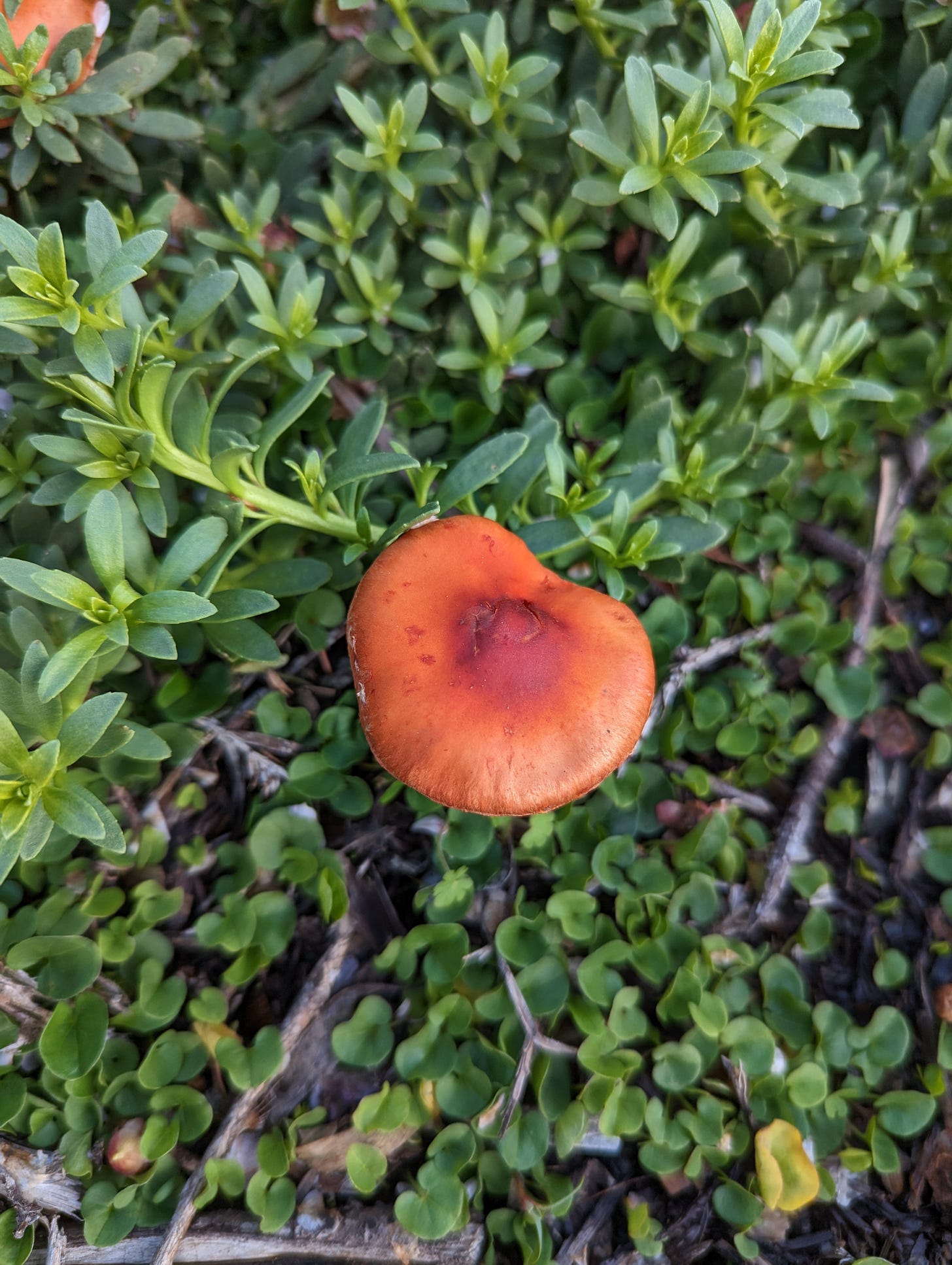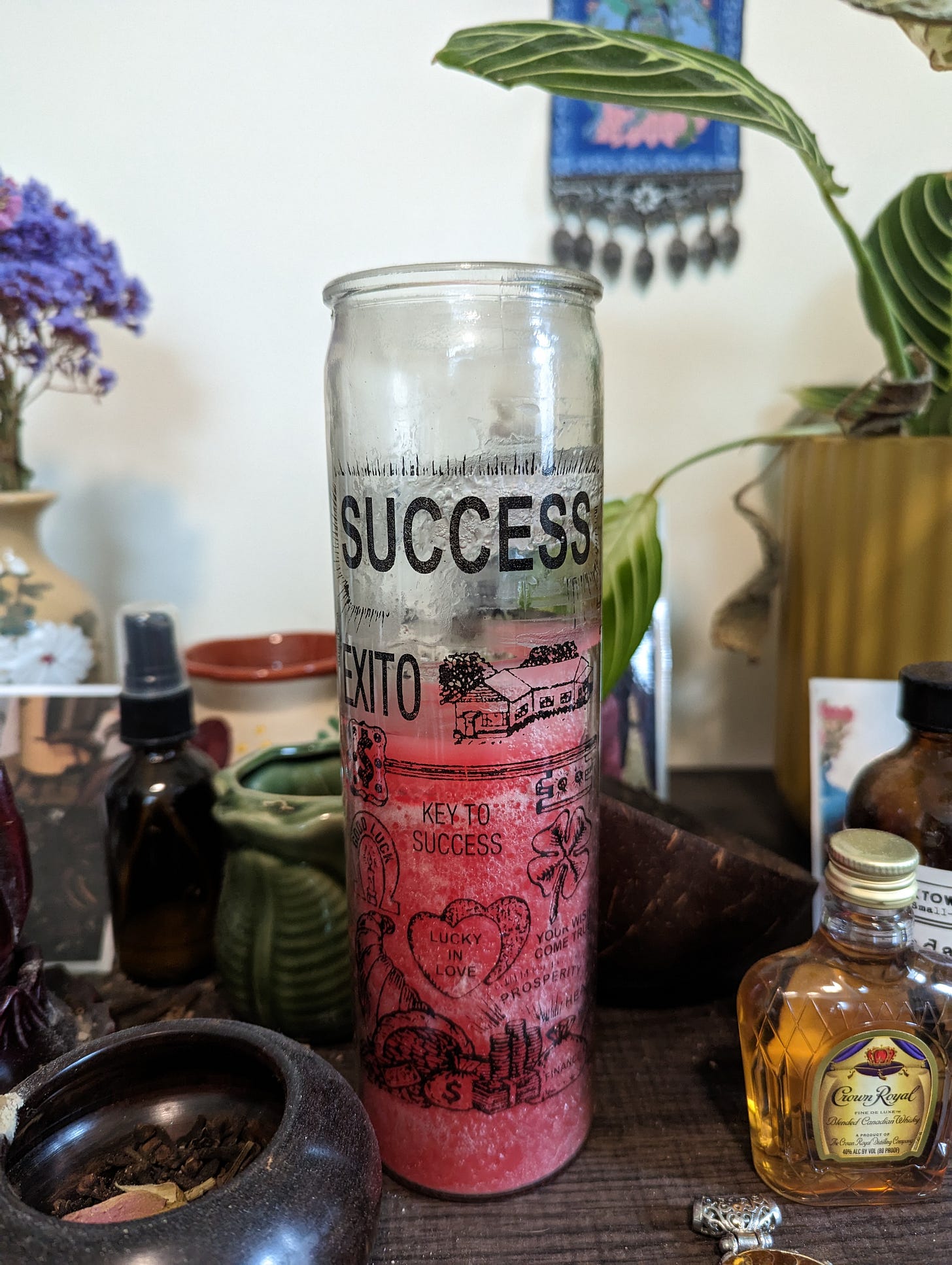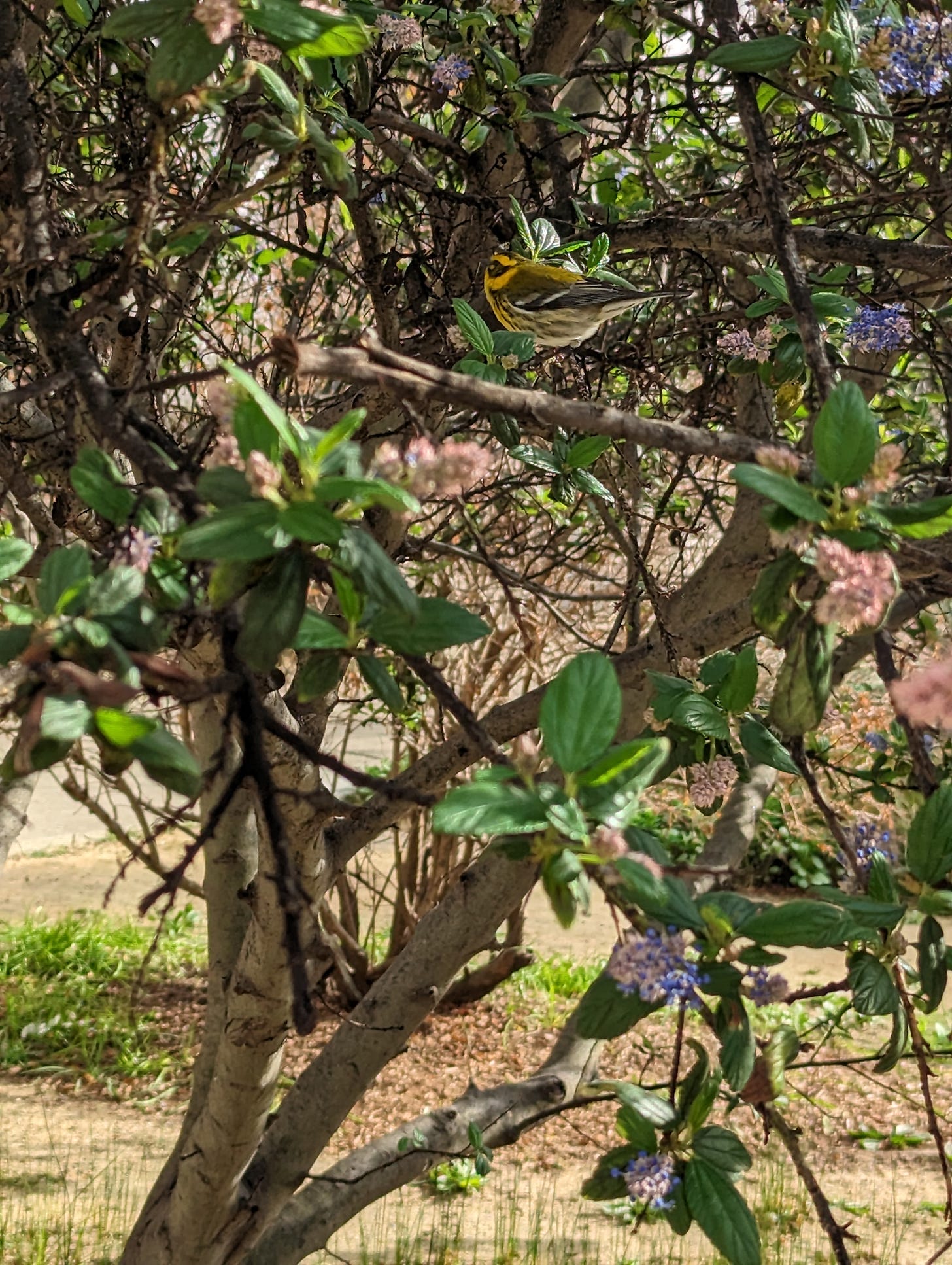“I can be beautiful and useless if that's all you know to ask of me.” - Camille Dungy, Characteristics of Life
No matter how busy I am or how tired I feel, I try to go for a daily walk. It can be as short as five minutes around the block or as long as my feet will carry me, but it helps remind me that I didn’t get into environmental action to be spending all of my time staring at a computer. I’m lucky because the Bay Area tends to have temperate weather for most of the year, and almost always, something is in bloom.
I am a deeply spiritual person, though most of that comes with my communion with nature. A sensorial rewilding; an act of solidarity with my plant relatives. I hear my grandmother’s whispers in the branches of fig trees, see phantom footsteps of ancestors long passed on trails with Anglicized names, carved into mountains greater than the expanse of human history. Recently, I took a walk with a garden educator along the San Leandro Creek in East Oakland, situated alongside a makeshift junkyard, train tracks, a homeless encampment and the I-880. She demarcated where pesticides were sprayed to kill all of the plant life, how the spillover from the poison left its marks in the soil. Once, this creek exploded with aquatic flora and fauna — now desiccated and trash-filled, it is an eyesore that collides against the re-greening projects throughout Sobrante Park. I thought about systematic neglect, the promise of success, and the ill gotten gains of the American Dream.
Earlier this year, I faithfully burned a success candle as I wrote pitch emails, prepped for my debut tour, reached out to other authors for blurbs, developed my syllabi for poetry workshops and in person classes alike. All my luck (or maybe more accurately, hard work combined with a resilient spirit) came back to me ten fold. It is said in hoodoo that if you run into a man on the road wearing black asking for money, give him a dollar, and your blessings will return to you tenfold. I think the same applies for the earth: all you need to do is contribute a little bit of your kindness, and she’ll reward you with a well of color.
Sometimes our spells work a little too well – sometimes we demand too much after giving too little. An oversaturation of opportunities is a blessing, but occasionally it’s also a lesson about time management and hubris. How much can we really handle? I find myself often drowning in the number of projects I’ve decided to take on, or I end up turning in a rushed draft I’m not too thrilled about, or sometimes my writing gets rejected altogether. Recently, I told a fellow poet that a lot of my new poems feel like “toddlers:” they are still ambling about trying to find their footing, and I am so protective of their little bodies. Challenging my idea of “success” is critical to the spellwork. Learning from my failures after oversaturation clears away all of the meaningless debris and hones focus. Seriously, what do I plan to do with my one wild and precious life?
Oversaturation happens on a climate level too: consider the atmospheric river that recently inundated California. After a long period of drought comes a huge swell of moisture to compensate. The Earth, wounded by human driven climate change, is healing herself the only way she knows how: violently. Yet blossoms litter the ground in the aftermath of the storm.
That’s what happens when you live in a relatively temperate climate after torrential rainfall: a fragrant jasmine bloom, hearty perennials lustfully display their fresh greens, mushrooms emerge alongside the trail and road alike (and of course, early-onset allergies wear out their welcome). Overeager spring anticipates its welcome in the heart of January. A wilson’s warbler (I’m pretty sure, birders please correct me if I’ve identified incorrectly!) greeted me the other day in a school courtyard garden, and its fragile little body swelled with foreboding. Everything we’ve come to know as “standard” is shifting. Adaptation is key, and part of adapting to a new world is getting familiar with rejection, or more accurately, failure.
Failure does not always have to be damaging, it can be beautiful. This is something I try to impart on my students, though the systems in place don’t seem to give them any space to act on it without a cascade of consequences (lowered GPA, a culture of shame, unhelpful feedback that does more harm than good). This January, I started teaching a first year reading and writing composition course entitled Introduction to 20th and 21st Century Black Environmental Literature at UC Berkeley. Many of my students are taking my class because they need to fill a requirement (and many of them are interested in the subject topic, though this is secondary). I want them to understand they’re not just there to get a grade and move on, but to develop a new sense of what can be possible, what can be achieved. There is something transformative in being bad at something, or venturing to be wrong, or to contribute a thought and have it challenged in a space that nurtures growth. A fear of failure holds us back from exploring, learning, growing, persevering.
Similarly, our collective rejection of sustainable practices seems to be rooted in a fear of failure, a worry that despite our best efforts, the damage is too far along and we’re just biding our time until irreversible collapse.
Like collapse, environmental change doesn’t happen abruptly – it took years to transform a bustling aquatic sanctuary like San Leandro Creek into a railway and highway enclosed wasteland, and it will take years of restoration work to bring it back. But look how stray cats stake their claim, how ragweed and wild grasses take up space, how small birds return, just to see what life can be gleaned from an industrial grave. Just because we may not be around to see the turtles return, doesn’t mean we shouldn’t begin the work anyways. Our failures, and the way we work through them, may give way to new life.
Recent publications: Check out my latest essay in Atmos Magazine about roly polys, Black futurity & bioremediation https://atmos.earth/roly-poly-black-futurity-environment-pollution/
Forthcoming: Rewilding & Writing Nature Poetry Class with Blue Stoop, every Tuesday from March 7th through 28th at 3 pm PST. Financial Aid FILLED, payment plans available! https://www.bluestoop.org/classes/ashia-ajani-writing-nature-poetry
We have cover art (reveal happening 2.13.23)! My debut poetry collection HEIRLOOM drops 4.18.23; stay tuned for preorder information!









such a beautiful and necessary read. failures are such wise teachers and there's so much power in being courageous, in telling ourselves: may I fail, I will stand back up. again. again. again.
love the part: "Our failures, and the way we work through them, may give way to new life. "
Failure as a birthplace, a creative force. ♡